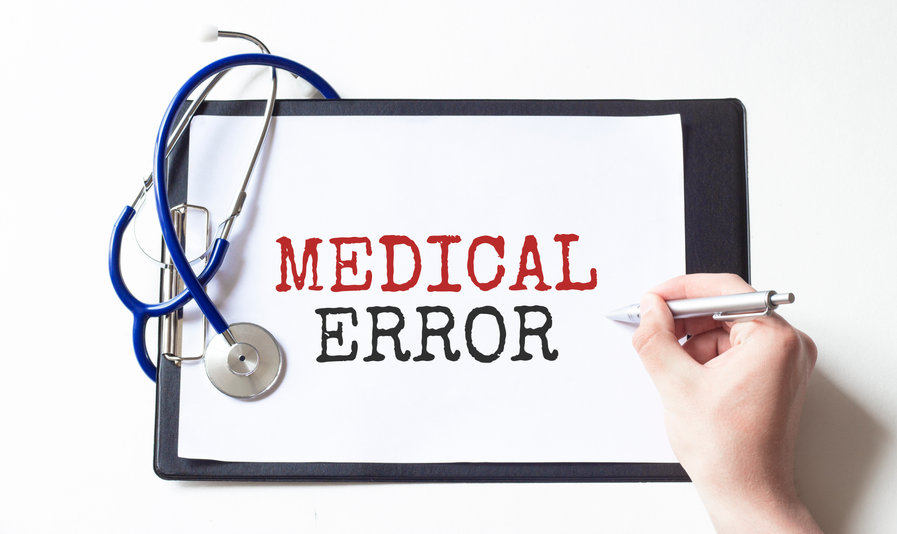

Failure to Diagnose Heart Attack: Medical Malpractice
If you or a loved one was injured due to heart attack misdiagnosis, contact an experienced local medical malpractice provider to discuss your legal rights.
(more…)


Report Finds 1 in 4 Medicare Patients Harmed During Hospital Stays
Medical errors are a serious public health problem and a consistent leading cause of death in the United States. A report published by the U.S. Department of Health and Human Services Office of Inspector General on May 9, 2022 revealed that one in four seniors covered by Medicare experienced some type of harm during their hospital stay in 2018. Twelve percent of patients experienced adverse events, characterized as medical care that led to longer hospital stays, permanent harm, life-saving intervention, or death. An additional 13 percent of patients experienced temporary harm events, which required medical intervention but did not cause lasting harm, prolong hospital stays, or require life-sustaining measures. Some of the temporary harm events were serious and could have caused further harm if medical providers had not treated patients in a timely manner.
Read More

Medical Malpractice Lawsuits for Misdiagnosis of Stroke
In honor of American Heart Month, let’s talk about misdiagnosis of stroke; one of the most common medical conditions caused by coronary artery disease and other common heart disorders. A patient who may be experiencing a stroke should be seen by a medical professional for a diagnosis and treatment as soon as possible (it is appropriate to visit the Emergency Room).
According to cdc.gov:
- In 2018, one out of every six deaths from cardiovascular disease were due to stroke.
- Someone in the United States has a stroke every 40 seconds.
- Every four minutes, someone dies of stroke.
- Every year, more than 795,000 people in the United States have a stroke.
- Stroke is a leading cause of serious long-term disability.
- Stroke reduces mobility in more than half of stroke survivors age 65 and over.
(more…)
Read More



Do I Have a Medical Malpractice Case?
Medical malpractice case is a legal cause of action that happens when a medical or other health care professional deviates from the standards of care in their profession through a negligent act or omission, thereby causing injury to a patient. Negligent omissions include failure to disclose test results or to provide proper aftercare. Negligent acts include diagnostic errors and prescription drug errors.
What is not medical malpractice case?
There are many scenarios that can lead to an unhappy patient that do not necessarily fall under the category of medical malpractice because the medical professional did not act negligently. Some examples include:
- Adverse or bad surgical or treatment outcome
- Untreatable patient condition
- Worsening patient condition
- Rude or hurried treatment
(more…)
Read More



Top 4 Medical Malpractice Claims Myths
Sadly, recent studies of medical errors published on pubmed.ncbi.nlm.nih.gov, estimate that medical errors may account for as many as 251,000 deaths annually, which makes medical errors the third leading cause of death in the U.S. While the numbers reported typically range between 45,000 and 95,000, experts acknowledge that less than 10 percent of medical errors are reported. When a person is injured as a result of negligent medical care or preventable medical errors, they may be entitled to compensation through a medical malpractice claim.
When it comes to personal injury claims, there are probably more myths and misunderstandings about medical malpractice claims than any other category. This is a problem because myths can prevent injured patients or their loved ones from seeking the settlement they deserve for their injuries.
(more…)
Read More

Failure to Diagnose Heart Attacks: Medical Malpractice
February is American Heart Month so this seems like a good time to talk about heart attacks, or more specifically, the damage that can be caused from failure to diagnose heart attacks. Until it was replaced by COVID-19, heart disease and the conditions it causes was the leading cause of death in the United States. Heart attacks, stroke and heart failure are all mostly preventable diseases when we make healthy lifestyle choices. A major survival factor for those experiencing heart attacks is access to quality healthcare with physicians who correctly diagnose their health issue.
If you have been seriously injured or lost a loved one due to a medical professional’s failure to diagnose or misdiagnose a heart attack, you may be entitled to compensation for medical bills, lost income, pain and suffering and more through a medical malpractice claim.
(more…)
Read More

Family Sues Seattle Children’s Hospital For Mold Found in Baby’s Heart After Surgery Causes Serious Illness
As reported on seattletimes.com, the family of a baby boy who ended up in critical condition after open-heart surgery at Seattle Children’s hospital has brought a negligence suit against the hospital for failure to disclose unsafe conditions in the hospital’s operating rooms. The infant – who was only six days old at the time he underwent open-heart surgery at Seattle Children’s hospital in October, 2019 – became gravely ill with a mold infection in his heart one-month post-surgery. The plaintiffs explain that they would not have chosen to have the surgery at Seattle Children’s hospital had they known about the mold issue. The family has had to rent an apartment near the hospital and says that their son has had respiratory and heart failure and needs another surgery. He may not be ready for release until his first birthday in September.
Read More



What’s the Difference Between Wrongful Death and Medical Malpractice?
When a person is injured or dies as a result of the negligence of another, they may be able to file a personal injury claim to recover damages. While both wrongful death and medical malpractice fall under tort law, the appropriate type of claim depends on the circumstances and type of injury. Medical malpractice is a specific subset of tort law that aims to hold professional negligence accountable while wrongful death law is applied in tort cases where the defendant’s behavior resulted in the death of the victim.
Read More

New Jersey Patient Receives Kidney Intended for a Different Patient: Wrong Patient Surgery
As reported by the BBC.com, a patient at a New Jersey hospital was given a kidney meant for a different patient earlier this month. The patients – who have not been identified – had the same name and were of a similar age. The wrong patient surgery was discovered one day after the transplant surgery by a member of the hospital’s clinical team. A spokesperson for the hospital says that this was an “unprecedented event” and that both patients have now received kidneys and are doing well. The patient who was supposed to receive the original kidney was given a different one about a week later.
(more…)
Read More

Medical Malpractice: FDA Issues Warning that Certain Antibiotics May Cause Aortic Aneurism
On Thursday, December 20 the U.S. Food and Drug Administration cautioned that the benefits of fluoroquinolone antibiotics do not outweigh the risks for certain patients. This warning came after a review of studies on patient problems published between 2015 and 2018 concluded that these antibiotics double the risk of a deadly aortic aneurysm for patients with certain symptoms or characteristics.
The patients with the highest risk of aortic aneurism from taking these antibiotics are the elderly, people with high blood pressure and/or who have a history of blockages of the aorta or other blood vessels, and patients who have certain genetic syndromes. The FDA advises physicians treating patients with these risk factors to consider an alternate source of treatment.
Read More